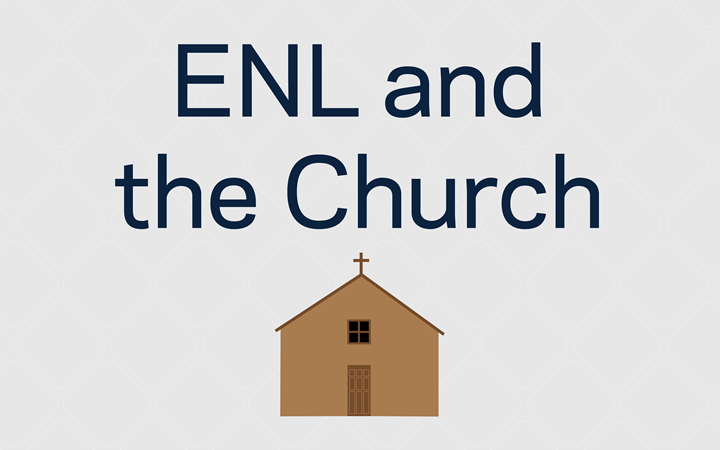The February after I graduated from ACE Teaching Fellows, I stumbled into a social justice position at the University of Kentucky's Newman Center. My timing was fortunate as the Diocese of Lexington's bishop, John Stowe, OFM Conv., had recently appointed three parishes to serve as places of welcome for the influx of Catholic Congolese refugees to the United States escaping the horrific violence in the Democratic Republic of the Congo. Our Newman Center was to be one of them.
The Congolese presented their most pressing needs to Bishop Stowe, including their need for additional help learning the English language. All refugees are required to take an English as a New Language (ENL) course upon arrival in the United States, but taking a truncated course while experiencing total upheaval does not tend to be terribly effective. The bishop asked the welcoming parishes to meet this critical need with help from the diocese.
The experience and knowledge I gained as an ACE teacher served me well as I immediately began working closely with Congolese community leaders to develop an ENL curriculum. We moved quickly to be ready in time for the summer. From May to August, about 20 Congolese refugees came to the parish center of the Cathedral of Christ the King twice a week for two-hour classes to learn the basics of the English language with a remarkable team of volunteer teachers from the three parishes. The Holy Spirit carried us through the initial chaos of such a major undertaking before the classes began to run like well-oiled machines.
We made it clear throughout that teachers and students were working together–not just volunteers helping the refugees. Everyone learned something. We taught them how to ask, "How are you today?" in English. They taught us the Our Father in Swahili: Baba Yetu. The blessings have spilled over to our church communities on Sundays where teachers and students join in the joy of the Mass together, then practice their new languages. I marvel at how comforting a few simple English expressions have been to our adult Congolese refugees as they navigate our unfamiliar church setting.
I believe this multi-parish model for developing a sustained community network to address the needs of a vulnerable population gives us a glimpse into what the Church is capable of in this new millennium. It heartens me to share our story so that others may witness what God has accomplished through the joining together of these amazing Americans and Congolese.
The Newman Center volunteer teachers and a handful of Congolese students have continued this fall and spring to meet once a week. My smile is biggest whenever I imagine what the Lord has in store for us this summer as the volunteer teachers wait eagerly for the bus to pull up with a new group of people ready to work to bring the Kingdom to earth.
Visit enl.nd.edu for more information about ACE's English as a New Language Program
 Alliance for Catholic Education
Alliance for Catholic Education
